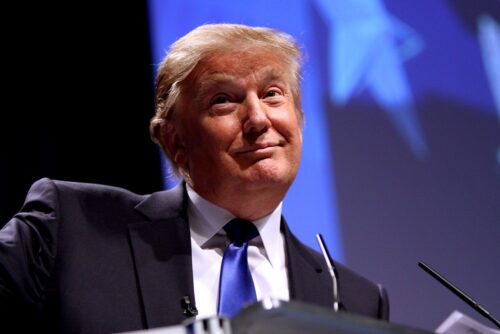Article
Limiting the President’s Tariff Authority Is a Good Idea

Article
Fact-based, data-driven research and analysis to advance democratic debate on vital issues shaping people’s lives.
Center for Economic and Policy Research
1611 Connecticut Ave. NW
Suite 400
Washington, DC 20009
Tel: 202-293-5380
Fax: 202-588-1356
https://cepr.net
Seven Republican Senators have joined together in a proposal that would limit the president’s authority to impose tariffs. If the Democrats in the Senate joined with the Republicans, they would have the votes needed to approve the bill. While they would face a certain presidential veto and other hurdles, it is a goal worth pursuing.
The bill, the Trade Review Act of 2025, would sunset any tariffs after 60 days if they are not approved by Congress. It also gives Congress the authority to reverse any tariff before this deadline with a joint resolution of Congress. The bill also requires the president to promptly submit an explanation for whatever tariffs they do put in place.
This proposal is solidly grounded, both as a general principle and also given the specific circumstances the country faces now following the tariffs recently imposed by President Trump.
As a general matter, the Constitution explicitly grants Congress the power to tax. It would be absurd if there were a loophole that allowed the president to impose taxes of any size for indefinite duration in the form of tariffs. This is especially wrongheaded given that the largest single source of revenue in the early years of the Republic was tariff revenue. Clearly the founders knew what tariffs were and decided to give that authority to Congress.
It is hard to understand how the wording in Article I Section 8, can be interpreted in any way other than that the power to impose tariffs rests with Congress:
“The Congress shall have Power To lay and collect Taxes, Duties, Imposts and Excises, to pay the Debts and provide for the common Defence and general Welfare of the United States;”
If the president can impose a tariff of any size, on whatever imports they choose, without seeking Congressional approval, it makes a mockery of Congressional taxing authority. It also gives the president enormous power to raise or lower taxes in exchange for personal favors from individuals, corporations, or foreign governments.
The tariffs recently implemented by President Trump present an especially good case for Congressional intervention. The tariffs put in place violate many longstanding trade agreements with other countries. There is also little obvious rationale for tariffs that in many cases are especially high on major trading partners and longstanding allies.
The amount of tax revenue potentially raised through these tariffs is extraordinarily large. Peter Navarro, the president’s trade adviser, estimated that they would raise $600 billion a year, or $6 trillion over the course of a decade. This is an enormous tax increase on businesses and consumers. It dwarfs the size of tax changes that are intensely debated within Congress.
President Trump has also indicated that he is prepared to make deals with both foreign governments and specific industries for tariff relief. This is precisely the sort of non-transparent process that the Constitution sought to prevent, where major decisions on taxation are made completely outside of public view.
It is important that Congress exercise its authority on taxation. That requires President Trump’s tariffs to be subject to Congressional approval.